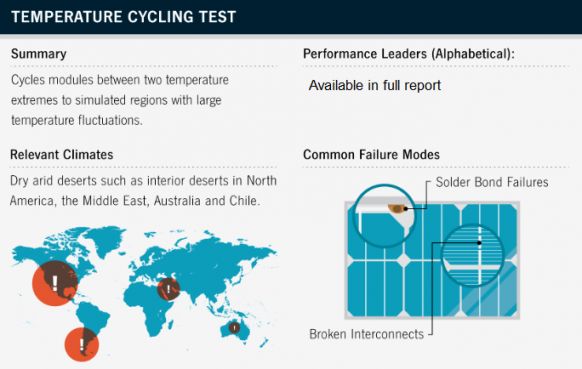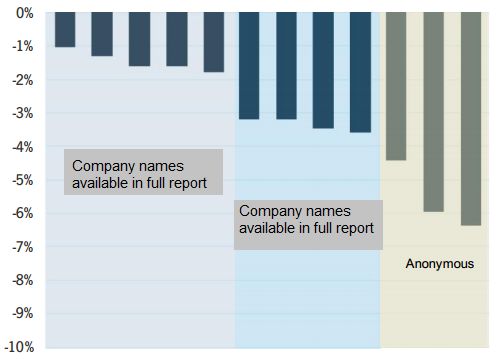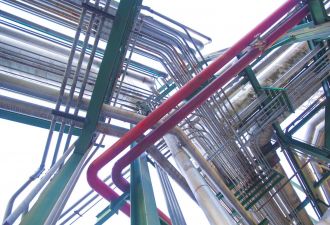GTM Research recently teamed up with DNV GL and pitted products from twelve photovoltaic (PV) module manufacturers against one another in a series of reliability tests. The module test known as thermal cycling is one of the most rigorous protocols used to assess reliability, and GTM Research confirmed that firsthand, as modules from all participating vendors showed some degree of degradation in power.
The thermal cycling test attempts to mirror climates with high temperature fluctuations, like the dry interior deserts of North America, the Middle East, Australia and Chile. For the GTM Research PV Module Reliability Scorecard, modules were cycled from -40 degrees Celsius to 85 degrees Celsius a total of 400 times. This process is designed to simulate approximately 15 years of operation in regions with large diurnal temperature fluctuations, true of some deserts.
Thermal cycling failure modes can include broken interconnects, broken cells, solder bond failures and junction box adhesion.

With a standard warranty (the module retains 80 percent of its nominal operating power after 25 years), degradation shouldn't exceed 13.5 percent in the tests based on the 15-year simulation. All twelve modules "passed" the test, displaying degradation rates between -1 percent and -6.4 percent, as seen in the chart below. This was the only test in which all of the tested modules exhibited "passing" results.
FIGURE: Thermal Cycling Test Results

Source: GTM Research PV Module Reliability Scorecard 2014
The report notes that in the real world, "thermal cycle conditions are coupled with other environmental conditions, like UV exposure, which would likely increase module degradation rates."
Report author and solar analyst Jade Jones writes, “Module reliability is not necessarily a consistent quality. Of all vendors analyzed, only one company consistently ranked within the Performance Leaders group for all tests."
The author notes that participation in the Scorecard program was voluntary and that all manufacturers have passed standard IEC and UL certification requirements, which certify that they are free of defects that cause early-life failure. The degradation rates seen in the tests may not be representative across all module manufacturers.
Other tests in the Scorecard regimen include dynamic mechanical load, humidity-freeze, damp heat, and potential induced degradation for positively and negatively biased modules.
***
GTM Research's PV Module Reliability Scorecard aggregates highly accelerated lifetime test results from DNV GL and provides supplier performance analysis. The Scorecard helps investors and developers generate quality-backed procurement strategies to ensure long-term project viability. For more information, visit http://www.greentechmedia.com/research/report/pv-module-reliability-scorecard-2014.



